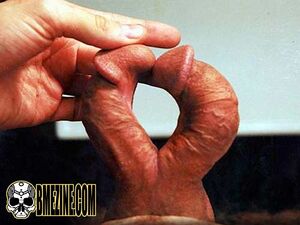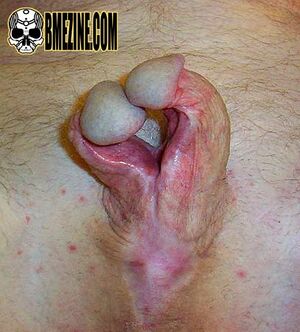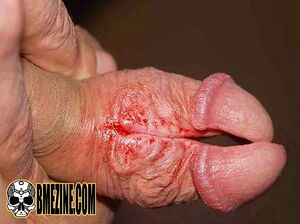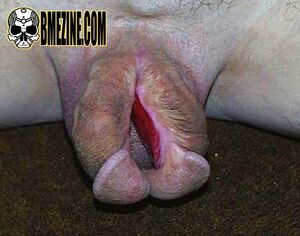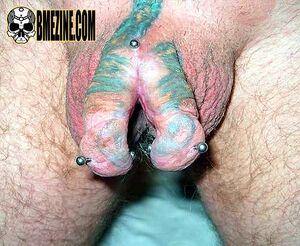Genital Bisection
The process called genital bisection is the total splitting of genitals. It generally refers to doing this to the male genitals, specifically dividing the penis into usually symmetric halves.
Partial splitting is either in length (ie. head splitting) or in axis (the far more common meatotomy and subincision procedures where only the bottom of the shaft is split, or the very rare superincision where only the top is split). Other variations include inversion where the split leaves the glans intact, allowing the penis to be effectively "turned inside out."
In most cases, the penis remains fully functional, although some rigidity loss is possible. The penis maintains its form by the two halves of the corpus cavernosum. When they are no longer attached, the penis tends to curve in on itself (as seen in the first photo showing an erect full bisection), making insertion more difficult, but far from impossible.
Nerve damage is a possibility in rare cases.
Related articles
Risks:
Example:
See also:
